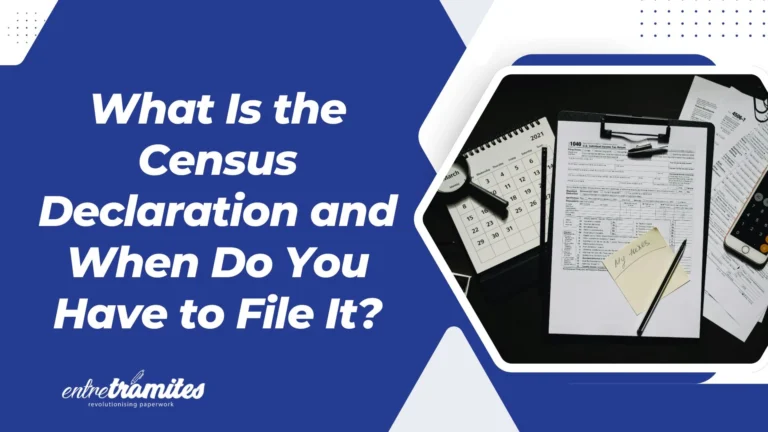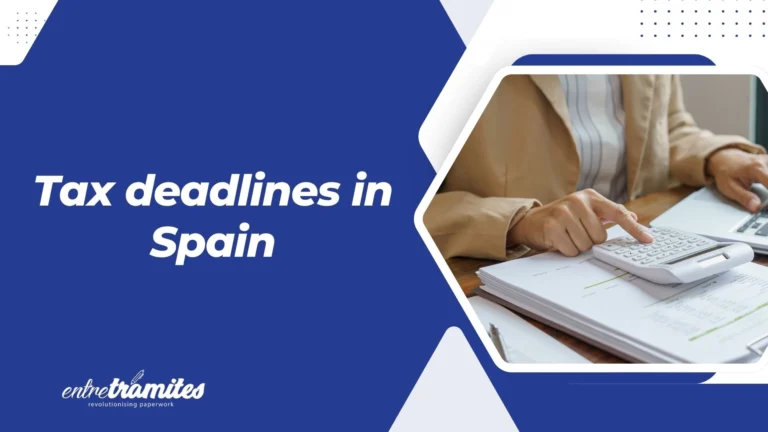The census declaration is an essential tax procedure in Spain that allows you to notify the Tax Agency (AEAT) of the start, modification, or cessation of an economic activity. It’s also used to update relevant information for freelancers and companies and to register in the census of business owners, professionals, and withholding agents.
This guide will cover what it is, who is obligated to file it, when and in what cases it must be done, as well as the procedure and forms used.
What Is a Census Declaration?
It’s a formal communication to the Tax Agency in which the taxpayer, whether an individual or a legal entity, provides key information about their tax situation. It’s filed using official forms:
- Form 036: The standard census declaration for any type of taxpayer.
- Form 037: The simplified census declaration for freelancers and small businesses that meet specific requirements.
This procedure is mandatory and free, and it is the necessary first step before you can issue invoices and comply with tax obligations.
Who Must File the Census Declaration?
The following people or entities are obligated to file it:
- Individuals who start an economic activity as freelancers.
- Companies and legal entities at the time of their incorporation.
- Professionals who change their tax address or activity.
- Taxpayers who modify their VAT, withholding, or tax regime information.
- Business owners and professionals who cease their activity.
When to File
There are three key moments when you must file the census declaration:
- Start of Activity: Before you can issue an invoice or perform any operation subject to VAT.
- Modification of Data: Within a maximum period of one month from the time the change occurs (for example, a change in tax address or VAT regime).
- Cessation of Activity: Within one month after closing or deregistering the economic activity.
How to File a Census Declaration
The procedure can currently be done in a couple of ways:
- Online: Through the Tax Agency’s E-Office using a digital certificate, electronic ID, or the Cl@ve system.
- In Person: At a Tax Agency office by scheduling a prior appointment and presenting the paper form.
Basic Steps:
- Download and fill out Form 036 or 037.
- Clearly indicate whether it’s a registration, modification, or deregistration.
- Provide the requested information about your activity, location, tax regime, etc.
- Submit it and keep a stamped copy or electronic receipt.
Penalties for Not Filing or Filing Late
Failure to file or an incorrect submission can result in administrative penalties. These can range from warnings and minor fines to financial penalties that, in cases of hiding relevant information, can exceed €200.
Frequently Asked Questions (FAQs)
Can I start my activity without filing the census declaration?
No, it is mandatory before you can issue invoices or conduct any economic operations.
What’s the difference between Form 036 and Form 037?
Form 037 is a simplified version for freelancers and small companies that meet certain requirements. Form 036 is more comprehensive and is valid for all types of taxpayers.
Is it free to file the census declaration?
Yes, the procedure is completely free.
In short, the census declaration is an essential step to formalise your relationship with the Tax Agency as a freelancer or company. Filing it on time and with the correct information avoids penalties and ensures your tax situation is up to date.
If you need personalized assistance, at Entre Trámites we offer management and tax advisory services for freelancers and SMEs. You can contact us through this contact form for us to call you, or if you prefer, you can schedule a free consultation or write to us on WhatsApp.





